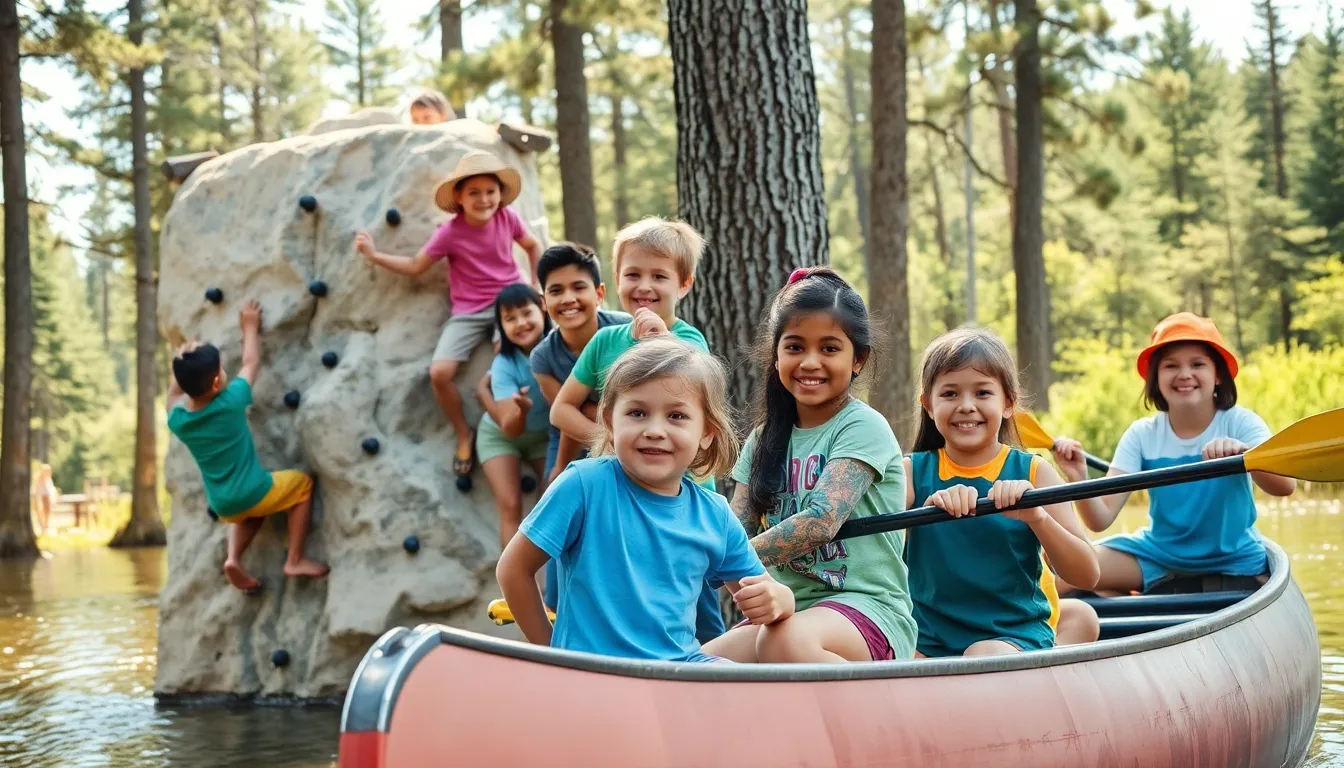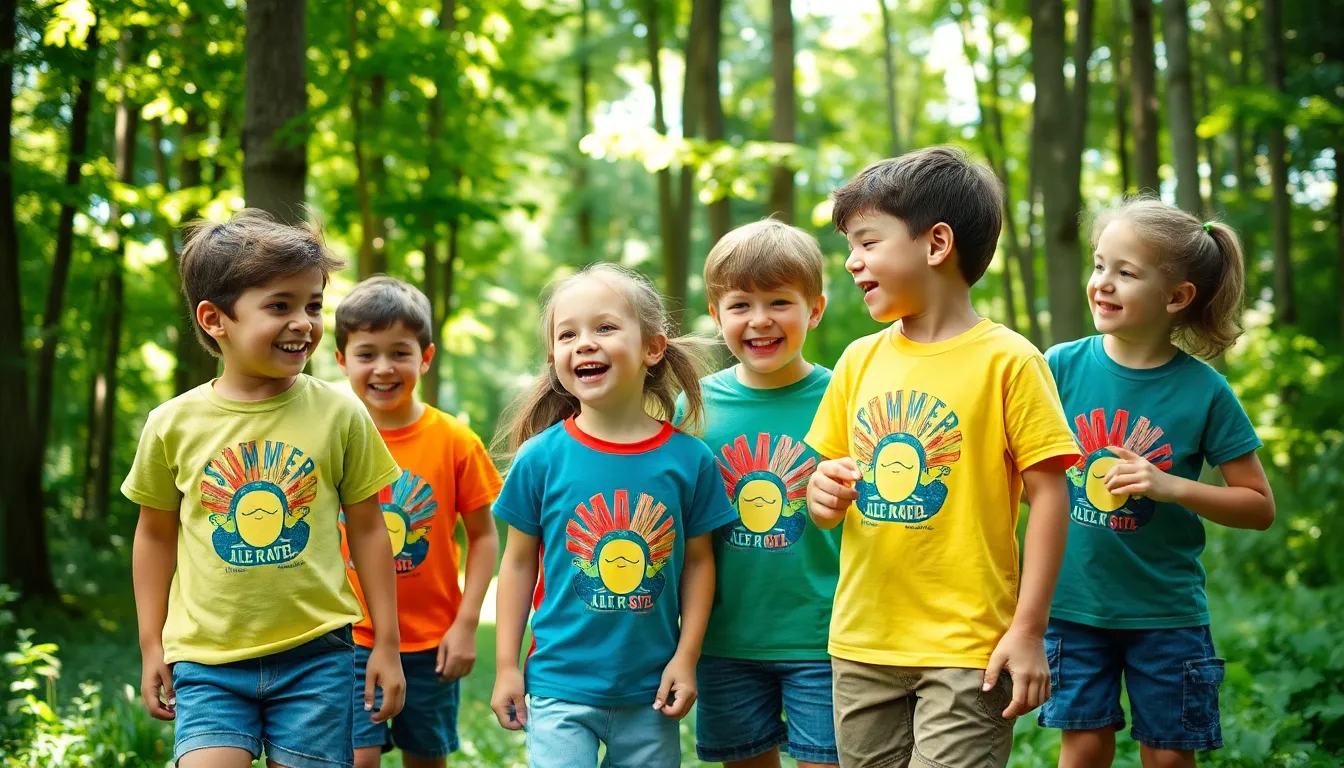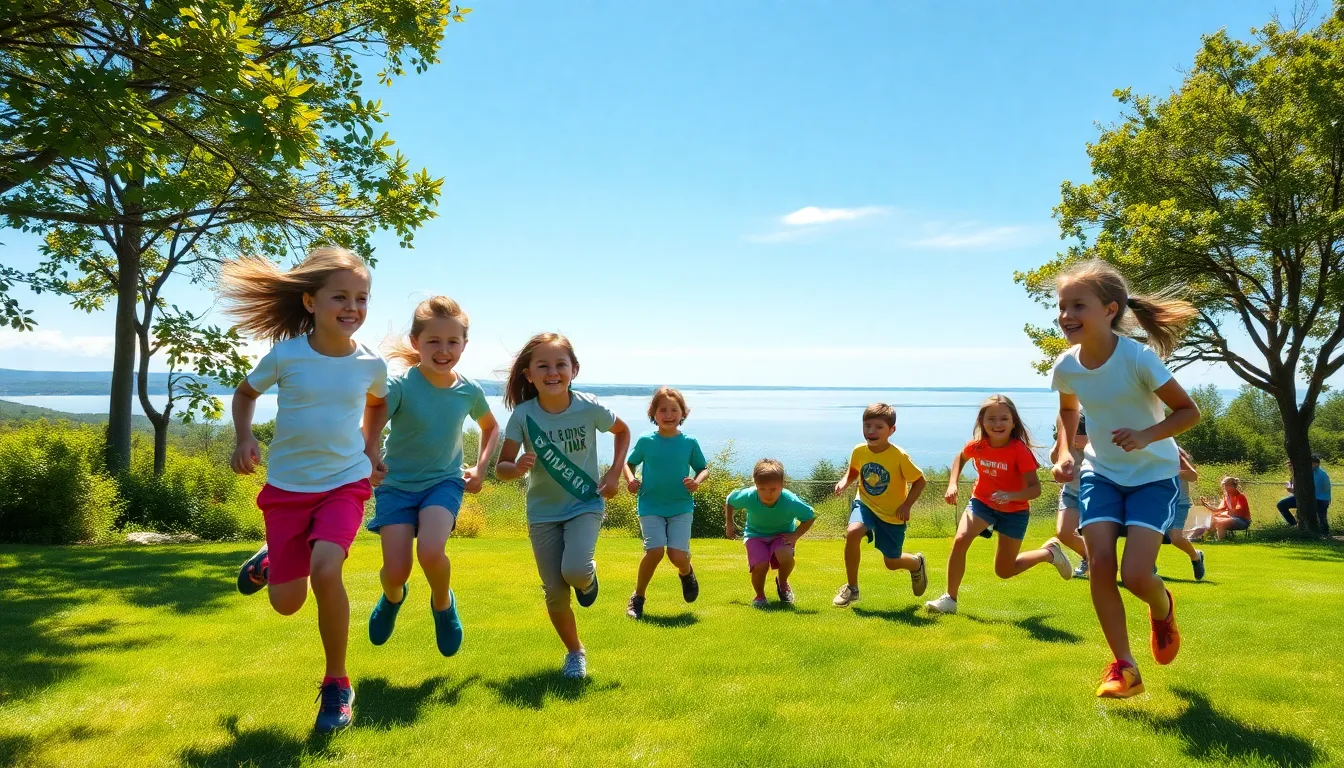Table of Contents
ToggleSummer’s just around the corner, and that means one thing: it’s time for youth summer camp! Imagine your kids trading their screens for sunshine, swapping video games for campfires, and making lifelong friends instead of just virtual ones. It’s the perfect opportunity for them to unleash their inner adventurer while you finally get a break from the endless “What’s for dinner?” questions.
Overview of Youth Summer Camps
Youth summer camps provide structured environments for children to explore new activities and meet peers. These camps typically offer various programs, including sports, arts, and outdoor challenges. Experiences at camps develop lifelong skills and boost confidence.
Participants engage in team-building exercises, fostering friendships that often extend beyond camp. The social interaction at camps sharpens communication skills. Campers learn to work collaboratively and share responsibilities.
Outside of skill development, many camps emphasize nature education, where youth discover local ecosystems. Environmental awareness promotes a sense of responsibility for natural surroundings. Many camps organize field trips that expose children to new environments and adventures.
Safety is a priority in camp settings. Certified counselors supervise activities while ensuring a secure space for all participants. Camps usually maintain low counselor-to-camper ratios to support individual attention.
Parents appreciate the structured schedules provided by camps. These schedules blend learning and fun, keeping children engaged throughout the summer. Camps usually run for weeks, allowing families to choose durations that fit their schedules.
Youth summer camps reflect a growing trend toward experiential learning. Feedback from parents indicates satisfaction with skill development and social growth observed in their children. As the summer season approaches, interest in local and specialized camps increases, driving enrollment up significantly.
Benefits of Attending Youth Summer Camps


Engaging in youth summer camps provides children with numerous benefits that significantly contribute to their overall development. These advantages range from personal growth to social skill enhancement.
Personal Development
Personal development thrives at youth summer camps. Campers gain confidence through new experiences, such as trying various activities, like rock climbing or canoeing. Participants also learn goal-setting strategies by overcoming challenges, promoting resilience. Furthermore, independence grows as children navigate daily tasks like meal planning and scheduling. Many develop a sense of responsibility while taking care of equipment or sharing group responsibilities. The supportive environment encourages self-discovery, enabling campers to express creativity and talent.
Social Skills Improvement
Social skills improve dramatically at summer camps. Interactions with peers foster teamwork, essential for success in various situations. Campers build friendships through collaborative activities, enhancing communication skills essential for personal and professional growth. They also learn conflict resolution while navigating differing opinions during team challenges. Engaging in group activities, such as sports or drama, offers opportunities to appreciate diversity and develop empathy. As friendships form, peer encouragement nurtures emotional intelligence, creating lasting bonds and enriching social experiences.
Types of Youth Summer Camps
Youth summer camps come in various forms, catering to different interests and needs. Each type provides unique opportunities for personal growth and social interaction.
Day Camps
Day camps operate during daytime hours, allowing children to return home each evening. These camps typically feature structured schedules, often filled with sports, arts, and educational activities. Campers engage in group activities, cultivating teamwork and communication skills. These camps accommodate families who prefer a non-overnight option and offer flexible scheduling. Often, parents appreciate the chance for kids to participate in enriching experiences without being away overnight.
Overnight Camps
Overnight camps provide immersive experiences where children stay on-site for several days or weeks. Participants forge deep connections with peers while engaging in adventures such as hiking, swimming, and campfire activities. Many overnight camps emphasize skill development, personal growth and independence. Campers experience a supportive community, encouraging friendships built through shared challenges. These camps benefit children by promoting self-reliance and resilience, making lasting memories along the way.
Specialty Camps
Specialty camps focus on specific interests or skills, such as sports, arts, or science. They cater to campers with particular passions, providing tailored programming to enhance skills and knowledge. Children often explore subjects in greater depth, engaging in hands-on activities that stimulate creativity. Specialized camps encourage participants to connect with peers who share similar interests, fostering strong friendships. Parents recognize the value of these camps in nurturing talents and providing focused learning opportunities.
Choosing the Right Youth Summer Camp
Selecting a suitable youth summer camp involves careful consideration of various factors. Parents look for camps that align with children’s interests, ensuring a fulfilling experience.
Factors to Consider
Camp location plays a significant role in convenience and accessibility. Safety measures, including certified staff and structured environments, are essential to ensure campers’ well-being. Another important aspect includes the variety of activities offered, such as sports, arts, and nature education. Program duration should align with family schedules, supporting smooth transitions for both kids and parents. Additionally, camper-to-counselor ratios affect individualized attention and support.
Questions to Ask Camp Directors
Inquiring about safety protocols can provide peace of mind for parents. Parents should ask about staff qualifications and training to assess the camp’s commitment to quality. Parents must confirm the types of activities offered and how they align with their child’s interests. Clarifying daily schedules gives insight into a typical camp day and maintains structure. Understanding the approach to conflict resolution can reveal the camp’s philosophy on social interactions and support. Additionally, parents can ask for testimonials from previous campers or families to gauge satisfaction and success.





